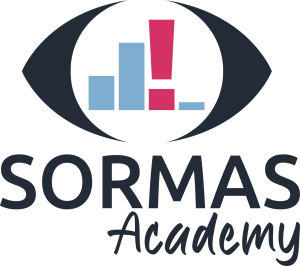SORMAS is a system that helps with organizing work by providing general and specific tasks. When someone needs to identify individuals who may have been in contact with a sick person, the task is assigned to the appropriate person responsible for the case or contact. If no one is assigned, the task is given to another person who can assist. If multiple individuals can help but no one is assigned, the task is randomly assigned. If there is no one assigned to the relevant area, the task is given to the person overseeing multiple cases or, if not available, to someone assisting at a national level.
Tasks can be created for different purposes, such as cases, contacts, and events, and can also be created without a specific focus. Various types of tasks are available, and users can create their own tasks and track them. Tasks can be moved from SORMAS to another location if needed.
To create a new task, users can access the ”Jobs” section and fill in the necessary details, including task type, due date, and assignee. Tasks can also have priority levels and allow for comments. Tasks can be modified by the appropriate personnel, and completed tasks are displayed in gray. Task management allows users to view and filter tasks based on their responsibilities. The system also supports team collaboration, with team leaders being able to assign tasks to team members. Administrators have the ability to make changes to multiple tasks at once.
Surveillance activities and outbreak responses often rely on the coordination of multidisciplinary teams. A broad classification of personas or user roles in an outbreak response include: hospital informants, surveillance officers, surveillance supervisors (state epidemiologist) contact officers, contact supervisors, case officers, laboratory officers, just to name a few. The task module allows realtime assignment and management of tasks among the different personas which then improves and enhances the overall efficiency of the outbreak response. The classification or context of a task can be general or associated to an entity (case, contact, event).

Task Management Directory
- Active tasks: Tasks that the system loads by default each time a user opens the tasks directory.
- All tasks: All created tasks in SORMAS irrespective of the user role or person that the task is assigned to.
- Archived tasks: Tasks that are removed from the default view. Archiving a task only prevents the task from being loaded by default in order to improve the performance of the system. This similar logic applies to all directories in SORMAS.
- Basic export: To download the task management directory with the associated variables as displayed on the default page.
- By date or By epi week: The time unit used to filter the task management directory. Possible options are: “by date” or “by epidemiological week”.
- Created by: The name of the user who created the task.
- District: The responsible district of the entity (case, contact, event) that the task is related to.
- Enter bulk edit mode: Once activated, this function allows the selection of several tasks and executes a single action (deletion) on all of them at once.
- My task: This filters the task directory for all tasks assigned to the logged-in user.
- New task: To create a new task.
- Officer tasks: This filters the task directory for all tasks assigned to surveillance officers.
- Region: The responsible region of the entity (case, contact, event) that the task is related to.
- Task from epi week… and, Task to epi week… : These two filters jointly select and display tasks by a desired period in epidemiological weeks. Activating the “By epi week” filter setting is a prerequisite for using these filters.
- Task reference date: The date type used to filter the task directory. It can be either the suggested start date, or the suggested due date.
Task Entity
- Assigned to: The name of the user responsible for executing the given task.
- Associated case/contact/event: The name of the entity (case, contact, event) that the task is related to.
- Associated link: It directs the user to the cases, contacts, or events for which a task is assigned.
- Comments on execution: Any users’ comments on the execution of the task, e.g. updates, challenges encountered, request for clarification etc.
- Comments on tasks: Any users’ general comments to the specific task.
- Due date: The date by which an assigned task should be completed.
- Suggested start: The recommended date by which a newly assigned task should start.
- Task context: This represents the entity (case, contact, event) or general aspects of response to which the task is associated.
- Task priority: An indication of the urgency with which a task should be executed (high, normal, low).
- Task status: The state of the task. It could be any of the following:Pending – tasks awaiting execution; Done – completed tasks; Removed – tasks taken out of the system because they were discarded; Not executable – tasks that are not possible to carry out.
- Task type: This represents the category of the task and includes: case investigation, case isolation, case management, contact investigation, contact follow-up, sample collection, sample transportation, sample testing, report generation, event investigation etc.

